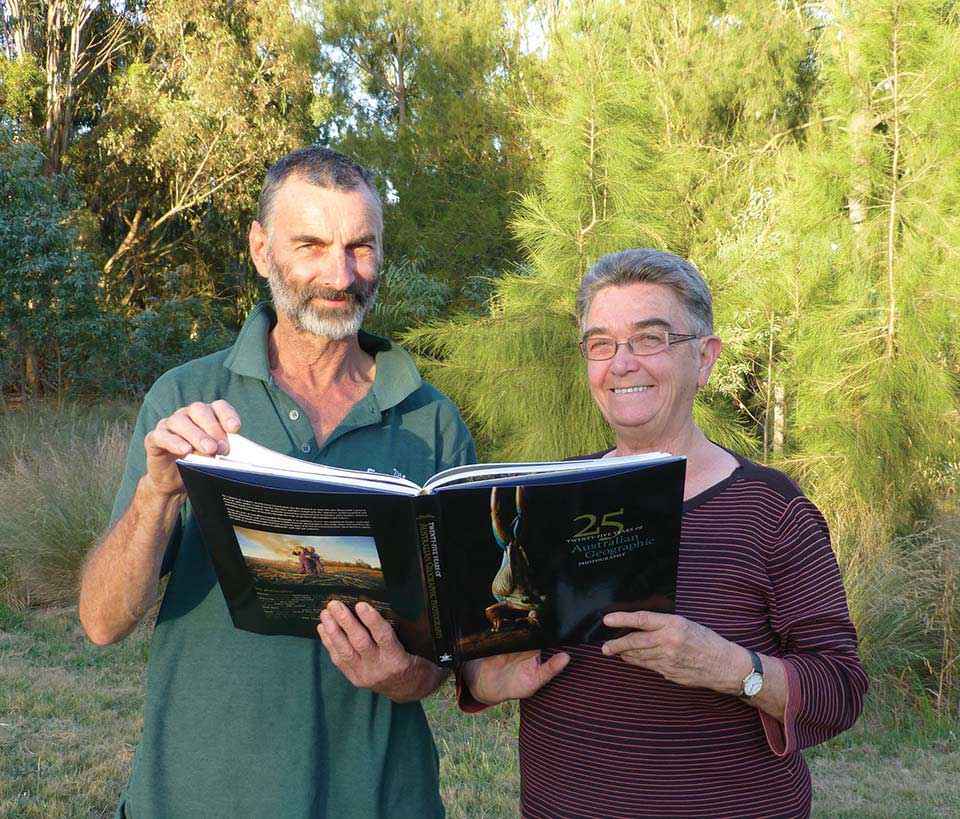Victorian Landcare Magazine - Spring 2016, Issue 67

Pioneer carbon-farmer Peter Forster was a driving force behind the Upper Hopkins Land Management Group and the Ararat Urban Landcare Group. He shares his vision for Landcare in 30 years.
Christine and I returned to the family farm at Ararat during the severe drought of 1982. The whole district was a dust bowl by the end of the year. We realised that we needed to rethink how we managed stock to conserve our most valuable resource, the topsoil. Other severe weather events causing stock losses showed the need for shelter.
Whole farm planning was important for providing us something to work towards. Once implemented, a whole farm plan makes your farm more efficient and sustainable. We did the course twice, with a ten-year interval, and it showed us that not much had changed in our thinking over that time.
With hindsight we would have increased the width of some of our early revegetation projects and selected different species.
The spacing between plants would also increase as severe dry spells naturally
cull trees planted too close together.
The work that we’ve done has been very satisfying. There is real enjoyment in watching our farm environment improve. Before fencing, revegetation, and a small amount of earthworks, Captains Creek was an actively eroding ugly scar. Now we can bush walk along the creek on our own farm starting from the back door. Watching the birdbath on a hot day from the kitchen table is also hard to beat.
I’m looking forward to a future in which we will have high-quality biolinks along waterways and in marginal farming and hilly areas. The catchment and associated biodiversity will be more resilient to climate extremes. Land use will more accurately reflect land capability. For example, arable land will be mostly cropped. Carbon farming, of trees, will increase on granite and sedimentary country where soil types are poor but trees grow well.
Renewable energy options (wind and solar) will be an important farm income source especially on marginal farming land. Landcare will concentrate increasingly on sustainability issues such as integrated pest management, soil health, animal welfare and fire planning as the standard Landcare work of fencing waterways and revegetation is completed. In some areas this is already happening. We will also need to return to older projects and keep improving the revegetation and dealing with the pest
plant and animal issues as they come up.